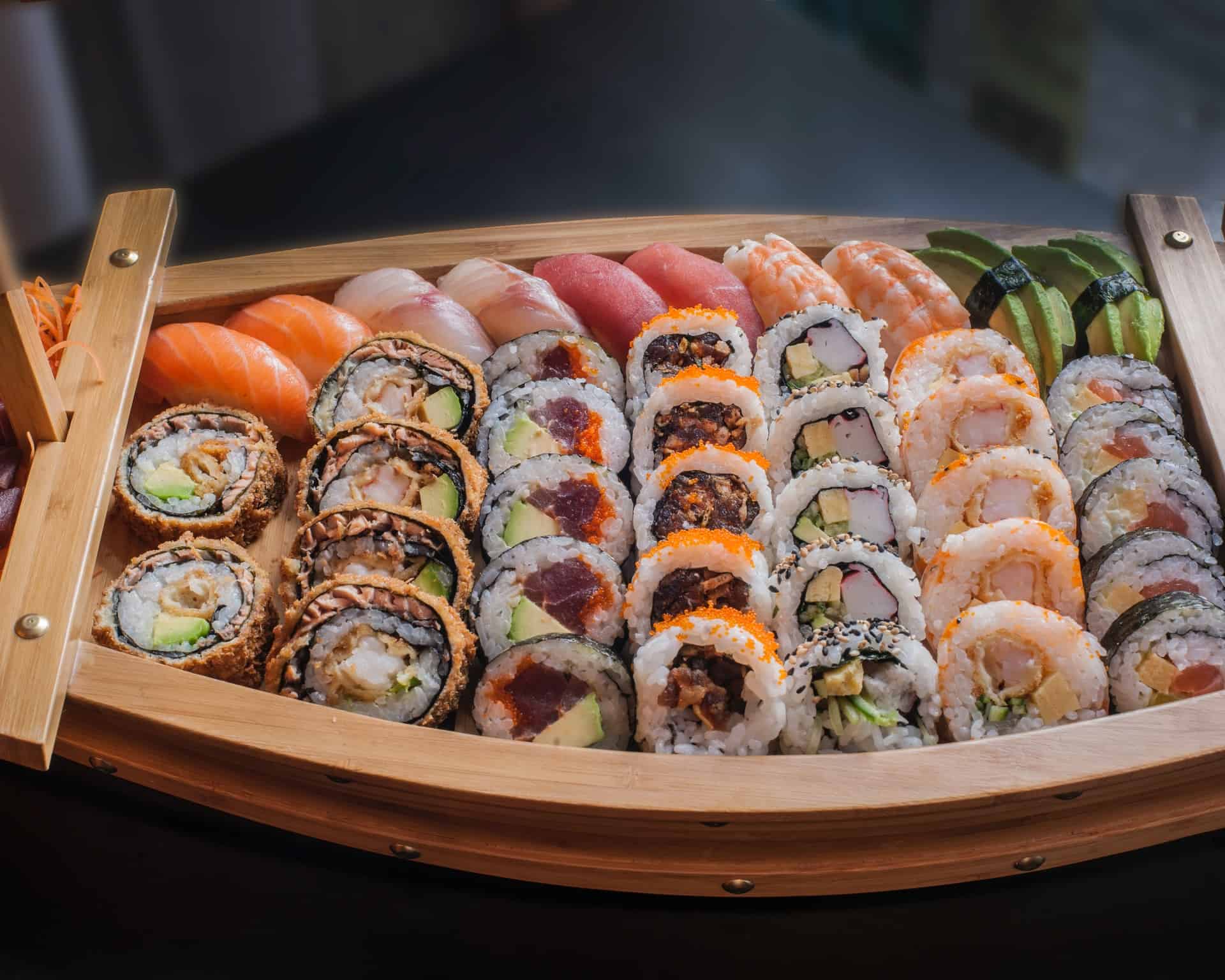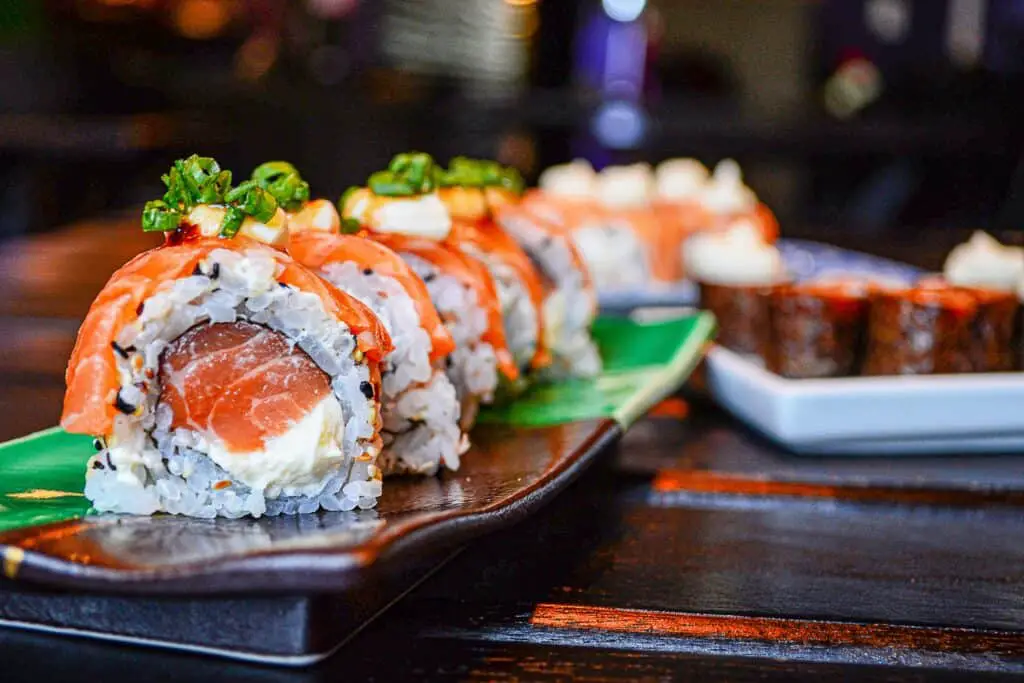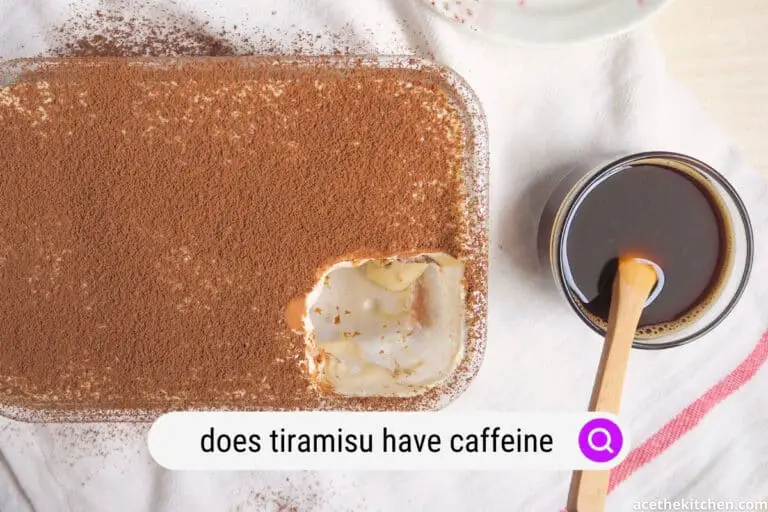How Long Is Sushi Good For After Buying It?

The question of how long is sushi good for is a popular one. Eating raw fish can cause a variety of reactions. Knowing the expiration date will help you avoid dangerous food poisoning that could be caused by consuming unpasteurized fish. Check out this guide on how long sushi lasts and what to do if your sushi has gone bad.
What Is Sushi?
Sushi is a type of Japanese food that is hand-formed, vinegared rice (or other grain) seasoned with salt, sugar, and vinegar. Sushi can be made with any raw, cooked or cured ingredients such as vegetables (e.g., cucumber or avocado), seafood (e.g., shrimp or tuna), eggs, milk products (e.g., cream cheese, milk), meat (e.g., tuna belly), and other ingredients.

How Long Is Sushi Good For?
To determine the expiration date, you should check the sushi packaging that came with your purchase. There will be a date printed on the packaging that tells you how long your sushi will last. If there is no date on the packaging, then you may want to wait several days before consuming the sushi
It’s important to keep in mind that these dates are only estimates and don’t always represent how long fish will stay fresh. The sushi can stay for 2 hours if it is stored at room temperature but it can stay up to 2 days if it is in the freezer.
If you have any concerns about your sushi, make sure you contact the store where you bought it so they can assist you.
How Can I Store My Sushi Properly?
When storing fresh sushi, it is important to eat it within one day. The taste will not be very pleasant when the fish has gone bad. To preserve the quality of your food, you should avoid placing sushi in a refrigerator or freezer. Instead, try to place your sushi in a cool, dry place like a pantry or kitchen cabinet. If the temperature of your living space is too high, then you should consider placing your sushi inside an airtight container such as a plastic bag or Tupperware container.
Can I Freeze Sushi?
Yes, sushi can be frozen and saved for a long time. It’s important to remember that not all fish will freeze well. If your fish is not frozen, store it in the refrigerator for no more than one week. For the best results, freeze raw fish at -20 degrees Fahrenheit or below. After freezing, it’s important to thaw the sushi before eating it.
How To Know If My Sushi Is Spoilt
If you’re unsure if your sushi is spoiled, the best thing to do is contact the fish seller. They should be able to tell you how long it lasts.
If you are unsure of expiration dates, it is safe to eat sushi for up to two days after buying it. Beyond two days, refrigerate or freeze your sushi to keep food poisoning away.
The Odour Will Change
One of the most important things to remember about sushi is that its odor will change. The smell can be a sign that the fish has gone bad, and one of the first signs to look for is an unusual smell. If you notice this change in your sushi, it is time to throw it away.
It Will Have A Dull Look
If you ever buy sushi and notice that it looks dull, then the sushi may have gone bad. When the fish dies, it releases a gas called trimethylamine oxide. This gas reacts with other chemicals in the fish to create a toxin called methyl mercury. This toxin can cause neurological toxicity, including memory loss and severe depression.
If you notice that your sushi has lost its shine or become more yellow than usual, then it is more likely that the food has gone bad. You can still eat sushi if you find it before the expiration date because there are no toxic levels of methyl mercury present in raw fish. However, after this date, you should discard any unpasteurized seafood and avoid contact with children because of the risk of developing irreversible brain damage.
What Are The Risk Of Eating A Bad Sushi?
If you buy sushi that has been exposed to a variety of bacteria, then it will not be safe to eat. Some of the bacteria that can grow on raw fish are Clostridium botulinum, Listeria monocytogenes, Salmonella enterica, and Campylobacter jejuni. All four of these types of bacteria can cause food poisoning or infection in people who eat contaminated raw fish.
Since the shelf life for sushi is about three days after purchase and one day if refrigerated, this means there is a risk of eating your sushi after the expiration date. However, some sushi is safer than others. For example, tuna and salmon are less likely to harbor C. botulinum than other types of fish like mackerel and carp.
How Can I Keep My Sushi Rice Soft
Keeping your sushi rice soft and fresh is important. Here are a few tips for you to use to avoid this issue.
- Keep your sushi rice in the refrigerator until shortly before using it. This will help the rice stay soft and fresh.
- If you’re going to be eating the sushi right away, don’t add any sauce or condiments or anything else that could make the rice soggy and unappetizing.
- When you wrap your sushi, make sure you cover it all with plastic wrap before refrigerating it so that no air can get on the rice. This will help keep the sushi from drying out and becoming stale.
What Can I Do With Left Over Sushi?
Once the sushi’s expiration date has passed, you can use it in other dishes. Just remember to cook any leftover sushi thoroughly before serving again. If you’re feeling adventurous, try turning your leftover sushi into a raw fish avocado roll.
Exciting Recipes You Should Try






